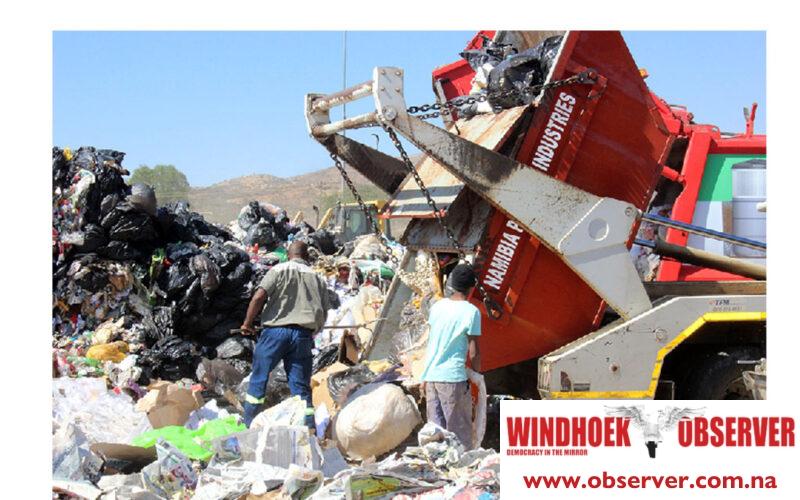Erasmus Shalihaxwe
The City of Windhoek (CoW) needs to commit approximately N$308 million to extend the Kupferberg landfill site’s lifespan and create more dumping sites to deal with the ever-growing city waste.
The capital city’s mayor, Queen Kamati, made this revelation on Wednesday during the stakeholders’ engagement workshop for the European-funded project to improve solid waste management.
Windhoek and the free Hanseatic city of Bremen are jointly implementing the project.
She said the municipal area’s rapid population growth has led to a surge in monthly waste generation, thereby placing pressure on the available airspace and lifespan of the existing landfills.
“From the almost 500,000 inhabitants, Windhoek generates approximately 600 tons of waste per person per day. This makes waste management one of the most pressing urban issues around the world. Therefore, we need collaborative efforts across all tiers of society to make Windhoek a better place to live,” said Kamati.
The Kupferberg landfill site, the general and hazardous waste disposal facility, is nearing its lifespan, and the council must commit approximately N$308 million to extend the current lifespan by creating more cells.
The World Bank estimates that the world generates about 1.3 billion tons of waste annually, or about 1.2 kg of waste per person per day.
This surge in waste generation is caused by population growth, rapid industrialisation, massive urbanisation, and significant economic development.
Insufficient waste management infrastructure and a lack of public awareness about the importance of proper waste management further exacerbate the situation.
Kamati said that after her recent random inspections around Windhoek, she realised that several street refuse bins and pole-mounted refuse bins had disappeared.
She pleaded with the city’s solid waste management department to reinstall the refuse bins throughout the city and step up cleanup efforts by putting waste bins in high-density areas like airports, bus stops, and taxi ranks.
“Residents will know the significance of correct waste separation and foster an understanding and culture of responsible waste management practices. I am sure you appreciate that disposing of solid waste is a mammoth task that requires vast financial investment, skill development, commitment, and engagement by and with all stakeholders, with due consideration to public health, transportation, and appropriate storage and collection methods,” she alluded.
The European Union Ambassador to Namibia, Ana-Beatriz Martins, said the only way to cope with growing amounts of waste is by creating an integrated waste management system that covers generation, segregation, sorting, treatment, recovery and disposal.
“Windhoek claimed the title of cleanest city in Africa not too long ago. Therefore, it is well-positioned to transition to such an integrated system. Of course, Namibia and Windhoek are not alone in this struggle. Sustainable waste management is recognised as a global concern and contemplated in the UN’s 2030 Sustainable Development Goals,” stated Martins.




